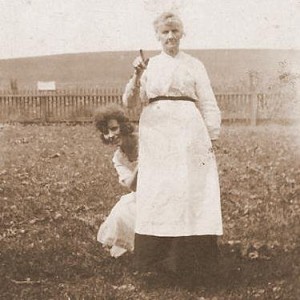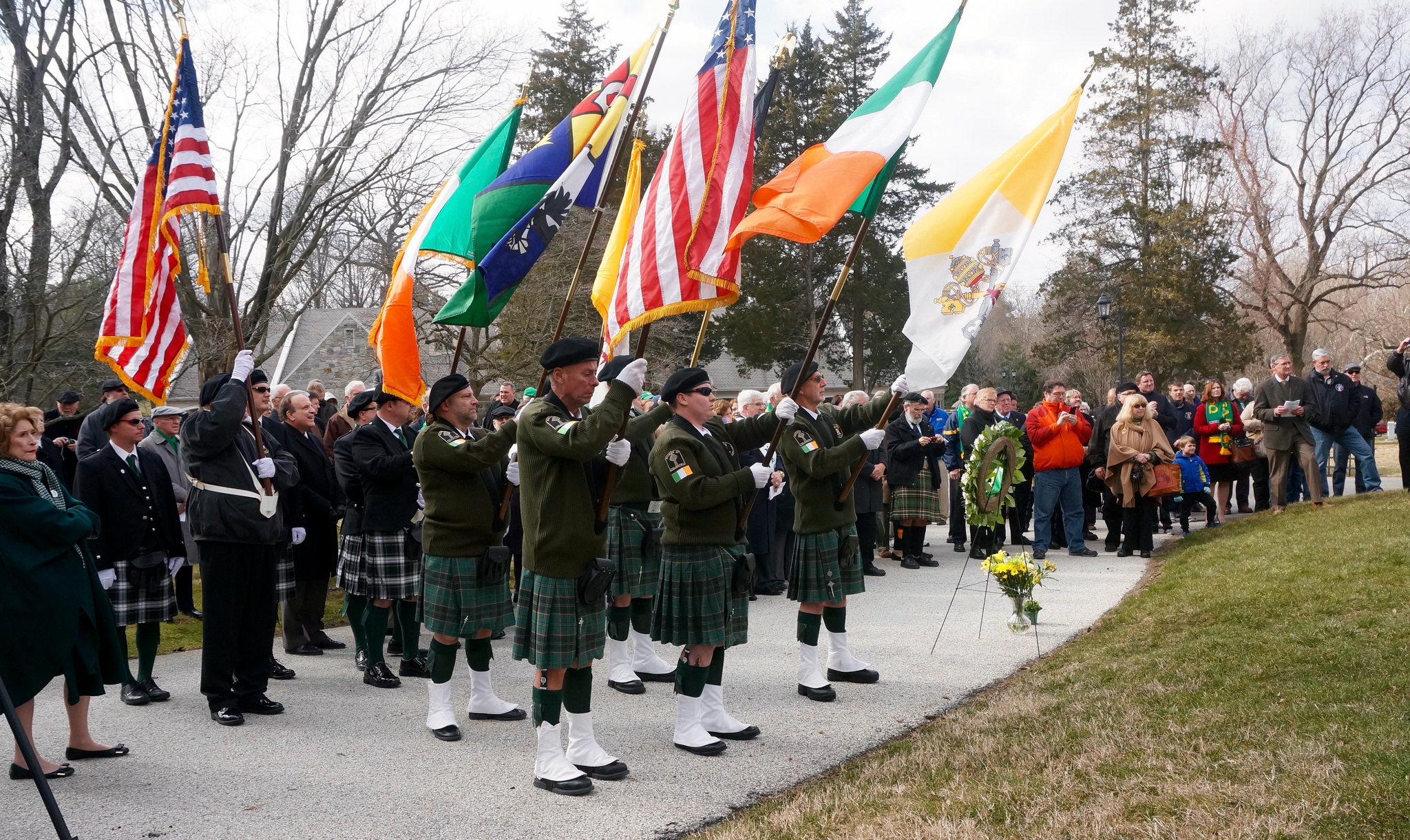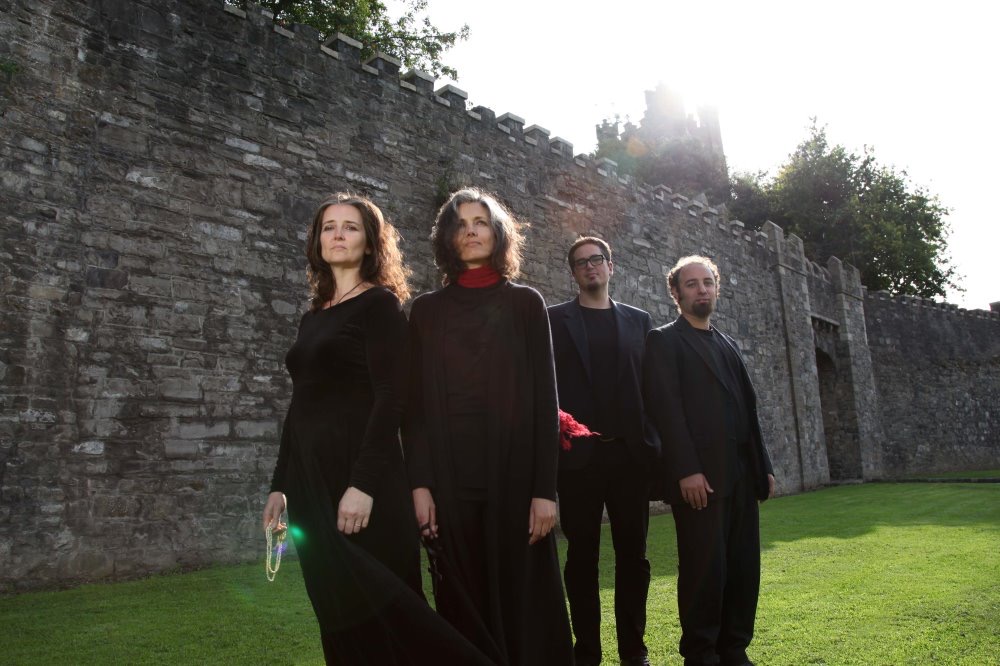
My great-great grandmother, Susan Virginia Thursday Victoria Ridgeway Riley, and her daughter Pearl Estella Angeline Hazel Riley Parker
For over two years, I’ve been contemplating this genealogy column. Contemplating it, mind you, not actually writing it. Denise and Jeff have been encouraging it, giving me carte blanche to write about whatever genealogical topic pops into my head—but never pressuring. Dublin and Philadelphia’s own fiddler, Paraic Keane, even unknowingly came up with the title, “Who’s Your Granny?” in a completely unrelated conversation with the Philadelphia Ceili Group’s Anne McNiff; as soon as I heard it, I claimed it in the name of Irish Philadelphia.
And, now, with the most Irish of all days just a little over a week away, it is finally time. Welcome to the first official genealogy column of Irish Philly.
Last week I made my first trip to the Philadelphia Archives, down on Chestnut Street between 9th and 10th. It’s a place I’ve been meaning to venture into for a very long time, but it was a talk by my friend and genealogist Deborah Large Fox that finally got me in the building. The topic was “Grandma Was a What?” and focused on collecting and preserving family stories. Although the lecture was for a general audience, the subject could have been created for Irish family research. Who is better at telling stories and passing them down than the Irish? It was the stories I heard as a child about my Riley ancestors that first got me hooked on genealogy—great-great grandfather Samuel Riley fought for both sides in the Civil War, starting out for the South, getting captured by the North, escaping and returning to the South…and then after it was all over, receiving two pensions, one from the Union and one from the Confederacy.
And, as Deb Fox pointed out, “Every family story has a nugget of truth.” My great-great grandfather did indeed file for pensions from both the North and the South, but the truth was a little more complicated, and less glorified, than the story. I found Samuel’s Virginia pension file online at the Library of Virginia’s Civil War Guide. And then, a few years later, while searching Ancestry.com, I found that a Samuel Riley, living in Virginia, had filed for a Union pension and cited a Pennsylvania unit. Using the information from that source, I went to the National Archives Military Records, and sent away for those records. Included in the file was a letter written by his daughter Eugenia stating that “he was with Co. B. 4th Pa Cavalry But a short time before he was wounded he is not able to get about now with 9 nine children all too small to help them self & a sick wife I would be so glad if you would use your influence in the pension office he deserted the Rebel Army & joind the U.S. Army & the people here won’t have a thing to do with him.”
Apparently, Samuel went off to join the 4th Pa Cavalry of his own volition, and was branded a deserter when he returned to Virginia after the war. Many times, the story is a prettier version of the truth, which is the tricky part about genealogy. Every family has skeletons, and when you start digging around in the family bones, you never know what’s going to fall out. When preserving the family record, both the stories and the records have a place.
“Documentation is the cure for a lot of genealogical ills…attribute the story. At least you have the source listed,” Deb explained. “Are records more reliable than stories? Records can create the same whisper down the lane effect. It’s keeping your sources, noting them down, being a skeptic—but you can be a skeptic and still enjoy the stories.”
And when you record the family stories, decide what your purpose is and who your audience will be. Is it for yourself, or for your descendants? Members of the public or living family members? This can make a difference even in the format you choose to use to preserve the history. There are many options out there now beyond just the published narrative. Many researchers set up websites, and encourage input from other branches of the family. Others make DVDs or photo books.
It’s still a complicated business when it comes to revealing an ugly family secret. I have found more than a few in my research—all a matter of public record—and while I strongly believe that the truth should be told, that there is healing in getting it out there all these generations later, I do think it’s important to be sensitive to anyone still living who may be personally affected by having a not-so-long-hidden secret unveiled.
Deb’s talk at the Archives was part of their Friday Genealogy Open House series, and this is a great way to meet up with other researchers. Visitors are encouraged to bring a lunch, and several people I talked to had taken the train in to Philly, which eliminated the cost and problem of finding parking. For more information, check out their website: Philadelphia Archives: Friday Genealogy Open Houses. And now that I’ve finally made it inside, I’m planning many more return visits to finally get to the bottom of my own Philadelphia ancestors’ mysteries.
For more great information, check out Deborah Large Fox’s genealogy blogs: Help! The Faerie Folk Hid My Ancestors! and her newest, Spilling the Family Beans.


